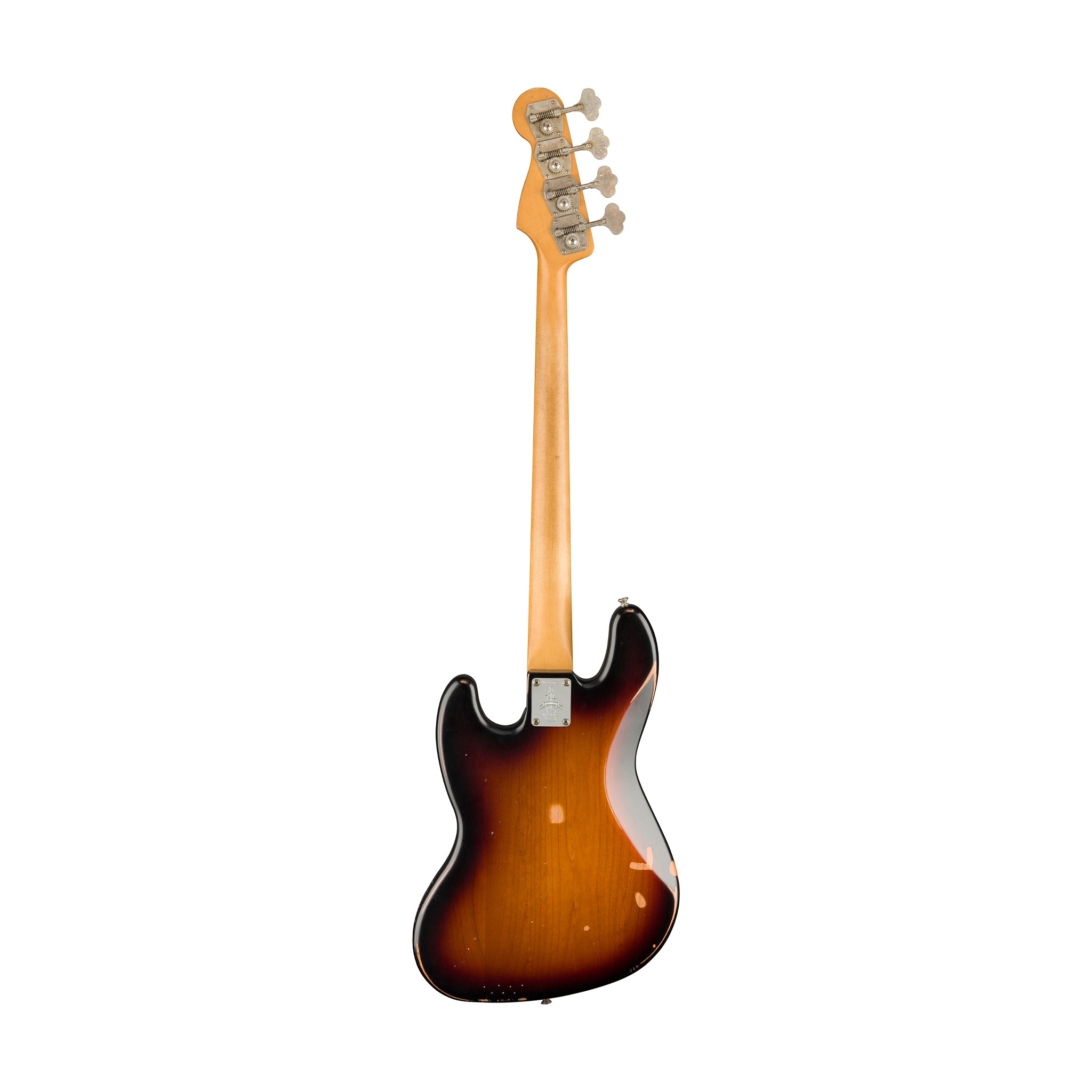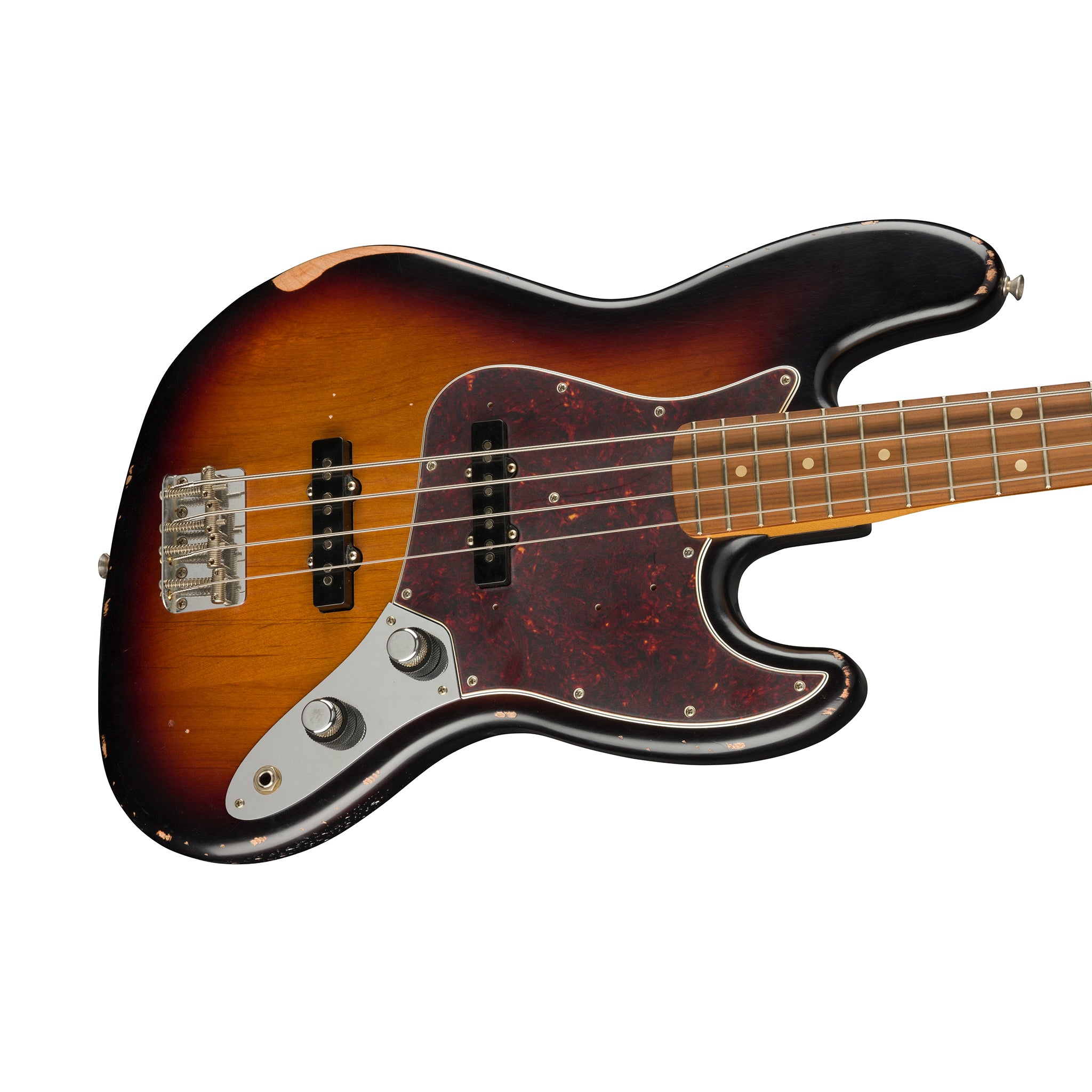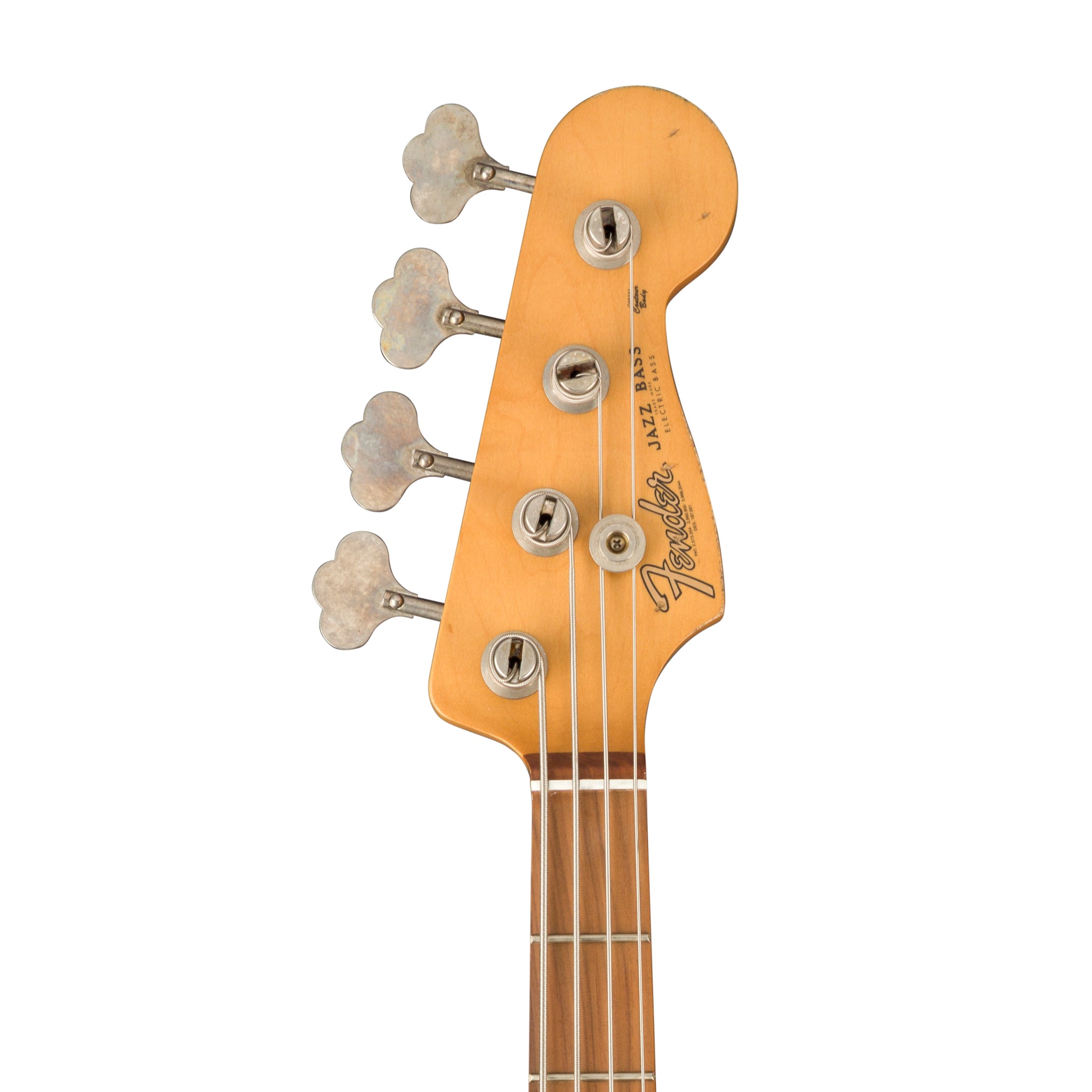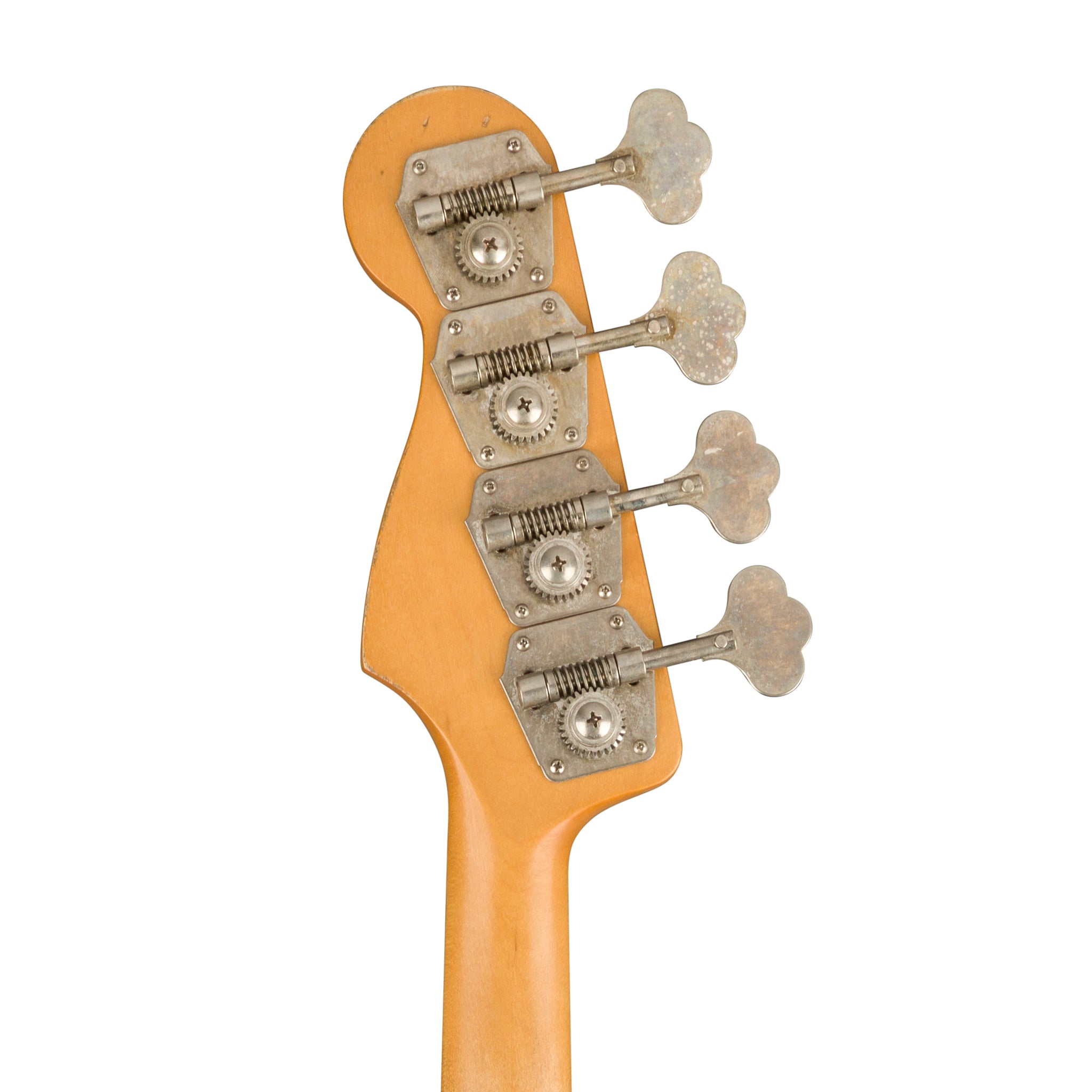Introduced in 1960, the Fender Jazz Bass® quickly became an icon. With its stylish and comfy offset body, versatile dual - pickup setup, and playable slim neck, it's a favorite among bassists in almost every music genre. Now, to mark its 60th anniversary, we present a limited - run Road Worn® Jazz Bass that captures the charm of the original well - loved bass. The single - coil Jazz Bass pickups offer authentic, original - era sound. The 'Mid ‘60s C' shaped neck has a 9.5” - radius fingerboard with 20 Medium Jumbo frets for a super comfortable playing experience. A vintage - style 4 - saddle bridge with threaded saddles and reverse, open - gear tuning machines not only look classic but also provide rock - solid performance and tuning stability. It has a 34” scale length, chrome hardware, and a 4 - bolt neck plate, and comes with a deluxe gig bag. Specifications: Body Shape: Jazz Bass®; Body Material: Alder; Body Finish: Road Worn® Nitrocellulose Lacquer; Neck Profile: Mid '60s 'C'; Fretboard Material: Pau Ferro; Fretboard Radius: 9.5' (241 mm); Scale Length: 34' (864 mm); No. of Frets: 20; Fretboard Inlay: White Dot; Pickup(s): 60th Anniversary Jazz Bass® Single Coil; Bridge: 4 - Saddle Vintage Style with Threaded Steel Saddles; Pickguard: 4 - Ply Tortoiseshell; Strings: Fender® USA 7250M Nickel Plated Steel (.045 -.105 Gauges); Tuning Machines: Vintage Style Reverse; Hardware Finish: Nickel/Chrome; Case: Hardshell.




Using your Fender 60th Anniversary Road Worn 60s Jazz Bass Guitar is a breeze. Just plug it into an amplifier and start strumming or plucking the strings to create amazing bass sounds. When you're done playing, make sure to keep it in the included hardshell case to protect it from damage. For maintenance, wipe the strings with a clean cloth after each use to prevent rust and dirt buildup. Check the tuning regularly and adjust the tuning machines as needed. Also, occasionally clean the body and fretboard with a guitar - specific cleaner to keep it looking great. If you notice any issues with the pickups, bridge, or other parts, it's best to take it to a professional guitar technician for repair.









